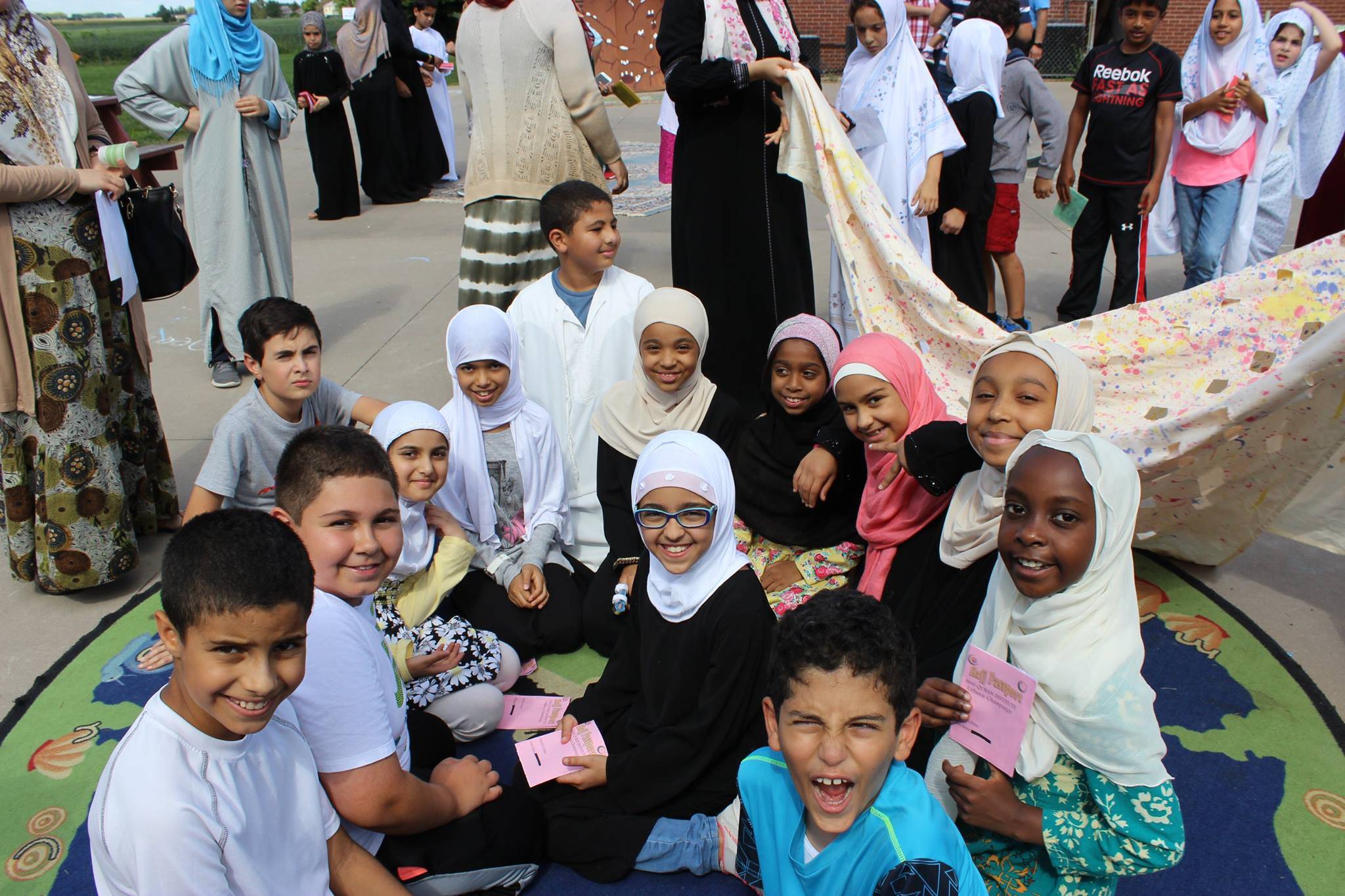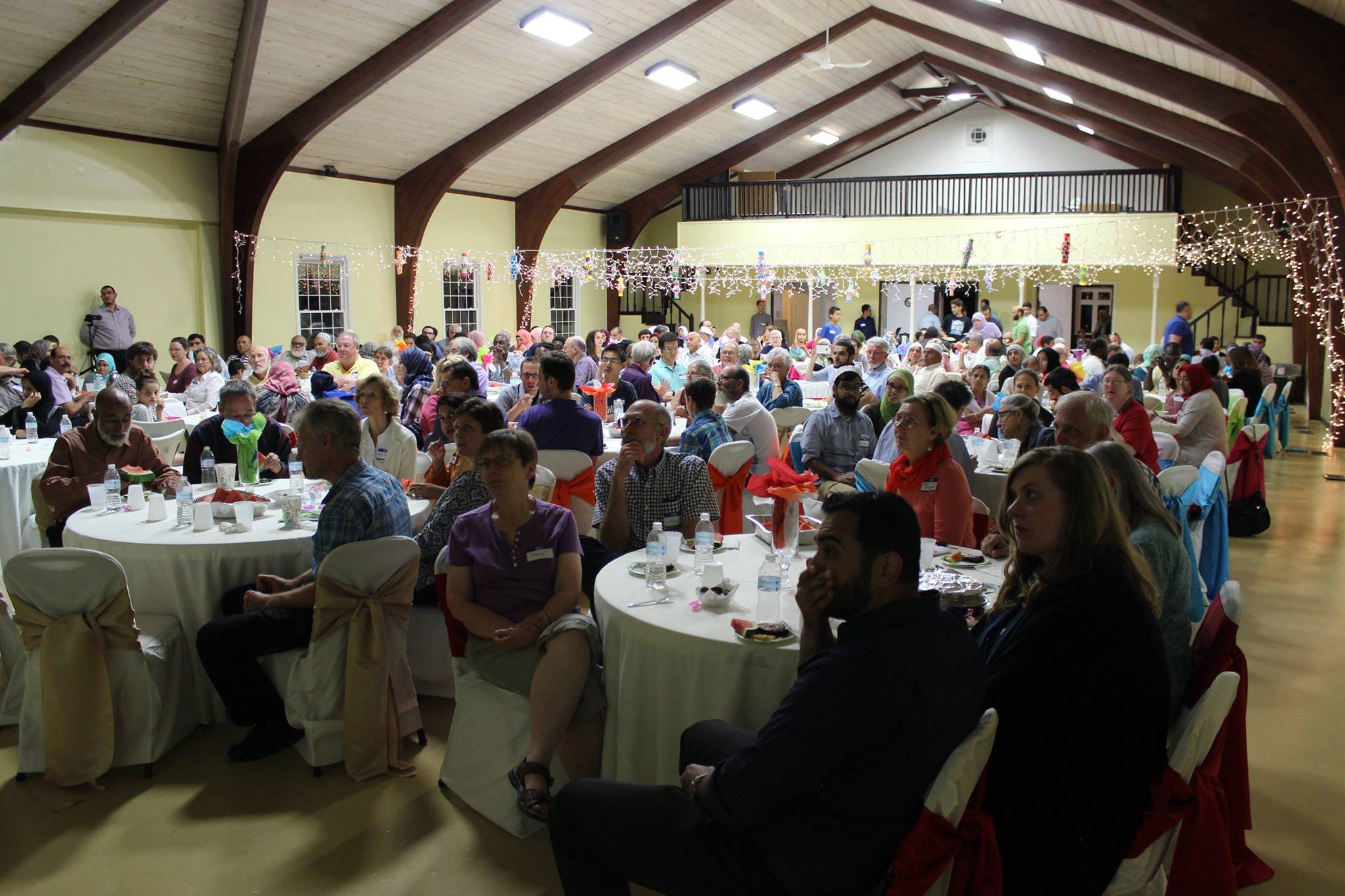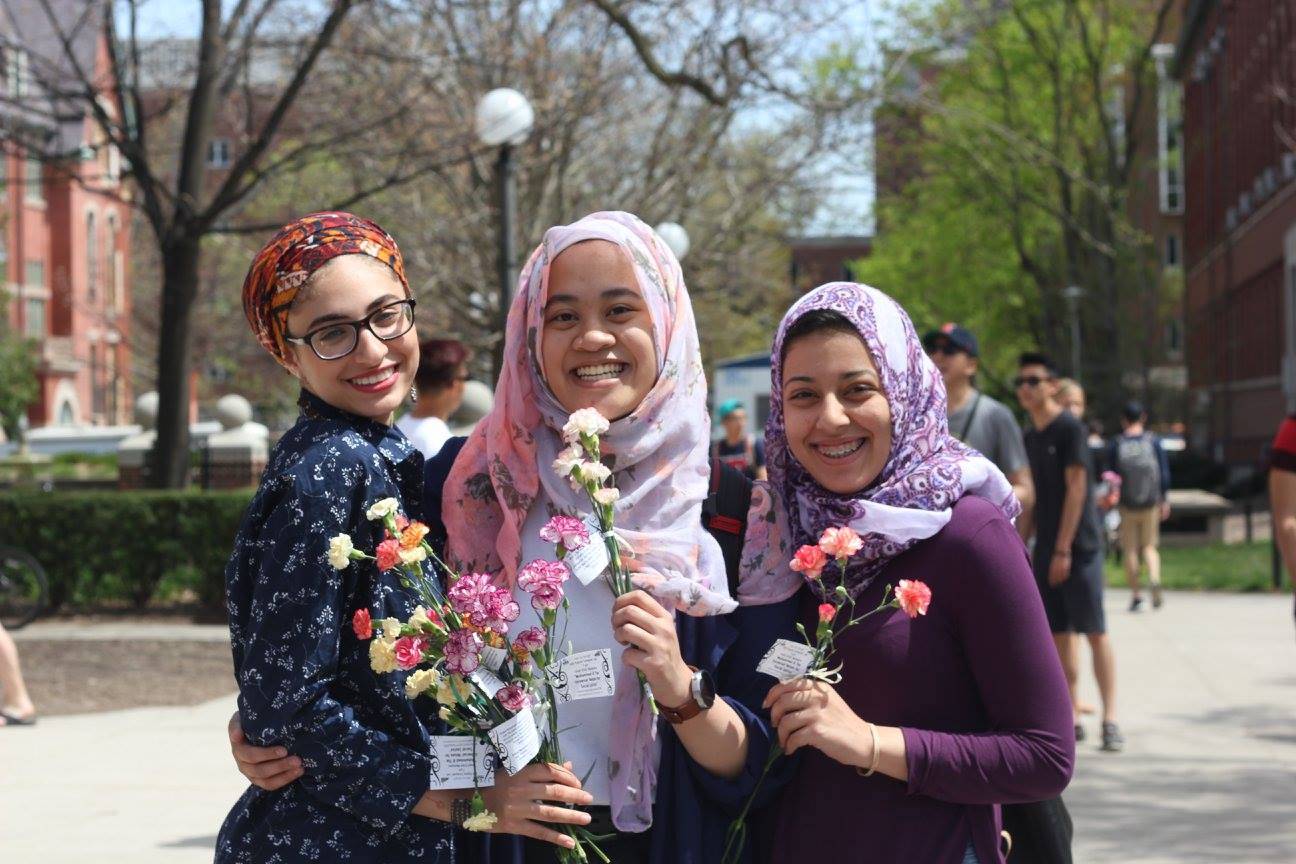Champaign-Urbana is rich with culture that stems from diversity that the city has cultivated. Many walks of life are proud to call our city their home and we accept anyone who wants to start a life here. According to Association of Religion Data Archives, in 2010 there were 3,298 Muslim alone in Champaign, and more than likely, that number has grown. To understand better what life is like as a Muslim in Champaign, I had the pleasure of interviewing two members of the Muslim American Society about their experiences in our city, both negative and positive.
Hanan Jabar, a 22-year-old female member of the Muslim American Society who was born and raised in Champaign-Urbana. Jabar has stated that when she was younger, she did not adhere to traditional Islamic clothing and had no problems with bullying or hate. Even after 9/11, she felt “safe” and did not experience any problems with people. However, in middle school Jabar starting wearing a Hijab and then treatment towards her started to change.
“In about sixth grade and being friends with some people for years,” Jabar stated “I started to lose some friends. People even said I was part of a terrorist group.” The prejudices even ascended as far as her teachers.
“I remember one time my teacher started speaking really slow to me but when I saw her talking to other kids, she spoke normal.” After Jabar went to ask the teacher why she spoke slower to Jabar in conversation, the teacher responded by saying “Oh, I didn’t know if you spoke English,” drawing on stereotypes of foreigners. The troubles did not stop there, issues continued to follow her into high school and college.
Jabar attended the University of Illinois and had two problems with professors. The first encounter was with an English teacher who gave her a B on a paper and Jabar, who strived for A’s, wanted to know why she received a B; so Jabar went to office hours. The professor explained that “[Jabar] never spoke in the class before so she assumed that [Jabar] did not know any English.” This motivated Jabar to participate more in class. Jabar managed to shed previously held beliefs of her English professor, who uses her as an example of good student.
However, her encounter with her math teacher was a negative experience. Jabar went to office hours to ask about homework, the professor said “why do you care? It’s not like they are going to allow you to be a teacher in your country anyway.” Jabar was shocked by the remark and attempted to have a conversation with the professor to stop drawing inferences about her because she was Muslim. She eventually ended up dropping the class.
There were incidents where obscenities were screamed at her such as “where’s your camel?” or “go back to where you came from” as she walking to her class or going home. Jabar has stated that she “doesn’t know if they were university people or not but it should not matter who they are, people should not treat people in that way.”
Jabar has stated her “experience in Champaign is overall good and the city has never really had groups of people forming racist attacks against the Muslim community”. Jabar also points out that the “local mosque organizations have open and positive dialogue with the other Abrahamic religions in the area and together, they educated people on Islamic faith.”

One experience Jabar shared with me was the time her mom and four other sisters were at Walmart — all of them were in traditional Islamic clothing. A lady had approached the girls and said “you five girls are the most beautiful girls and bring a jolly spirit wherever you go. I’m sorry for the all attacks that are happening to people in your community elsewhere, we aren’t all like that.” This memory has stuck with Jabar and it will certainly remain with me.
The second person who I had the pleasure of interviewing was Aliaa Taha, an 18-year-old female who has lived in Champaign-Urbana for the past ten years. Taha experienced similar issues like Jabar with obscenities being yelled at her. She has even been giving the middle finger.
“It’s easy it to shrug off” Taha stated, “when you know that these actions are not justified and come from a place of lack of education and information.”
Taha, like Jabar, stated that “almost everyone I’ve encountered has been very accepting of the way I dress and my lifestyle.”
When I asked them both how they defined Islamophobia, they had similar answers with Taha stating “dislike, fear, or prejudice of Islam and Muslims.” Where Jabar adds on “people who are afraid of anything that looks remotely Middle Eastern, from speech to forms of worship and prayer.”
It is quite clear that Jabar and Taha has experienced a certain level of Islamophobia in their lives. In a recent study done by the California State University, in 2015 alone there was a 78% increase of hate crimes against Muslims.
Taha responding to this statistic by saying that “blatant hate speech used not only by the media, but by major politicians [is the cause of the rise in crime.] I believe that people are more likely to act on a racist thought or belief if they are continuously hearing the type of rhetoric that legitimizes their beliefs and there has been an increase in anti-Muslim rhetoric by many people.”
Jabar believes that politicians are also playing a significant role in anti-Muslim behavior. Jabar stated “There’s a certain presidential candidate that isn’t doing anybody any favors. Trump’s campaign has allowed racist to be openly racist and legitimize their opinions.”
One national story displayed obvious signs of Islamophobia, in Jabar’s and Taha’s definition of the word, was the case of Abdul Aziz. Aziz was a seven-year-old who has bullied by being beaten on the bus, food forced that was not Halal — food that adheres to Islamic law — and called “a terrorist”. This resulted in Aziz’s family moving out of the United States and back to Pakistan.

“Heinous acts like this is not only a testament to the magnitude of Islamophobia that exist today,” states Taha “but also shows that people in a free and accepting nation are going backwards when it comes to the tolerance of all people.” Taha continues by saying “the marginalization of a people based on what they believe, their appearance, or [lifestyle] they choose to practice is very familiar in our history and if we, as citizens and authorities, do not make a conscious effort to be more tolerant and hospitable to all people, we are going against the values that this country preaches.”
For Jabar, this story hits too close to home. “My brother, when we were younger, would play outside but there was a group of kids we nicknamed ‘The Skater gang’ because they were always skating. One day they held my brother down and one of them shouted ‘Go inside and get some bacon’ so they could try to force the pork meat down his throat.” The bigger concern was not that the kids went through with this action but, being at such a young age — they were six — the kids had to learn it from someone. This is Islamophobia that must be stopped and prevented from happening through education of different lifestyles.
When it comes down to resources for Muslims in Champaign, Jabar and Taha said the Central Illinois Mosques and Islamic Center, Muslim American Society, and Muslim Student Associations are great places to go for help and to connect to others that are part of the Islamic faith. “There are also Muslim youth groups on Saturday and Sunday at the local mosque for every age” Jabar added.
Both Jabar and Taha said “get involved with the Muslim community.”
“One of the great things about being in a small town is the fact that you get to have personal experiences with most people you meet, places you visit, and communities you join” stated Taha.
“You could be the changing light for someone out there and who doesn’t completely understand Islam” said Jabar. “I love Champaign and I love the people, they will always be in my heart.”
I can safely say that the heinous incidents and obscenities screamed where a case of a few bad apples. Champaign has no code or oath that would promote the hatred of minority groups. This does not mean that we should ignore the incidents and slurs yelled at Jabar and Taha as something that only happens once in awhile — it may not happen often here, but there are places less accepting of different lifestyles. These are not just acts of Islamophobia but injustices done against humans for no reason. I am proud member of the Champaign community, as well as Jabar and Taha, who are examples on how love, education, and acceptance, can create a strong community like that of Champaign-Urbana’s.
Photos from MAS Urbana-Champaign’s Facebook page.








